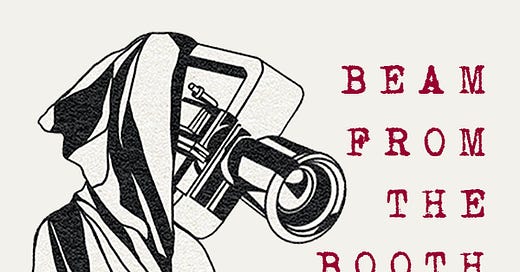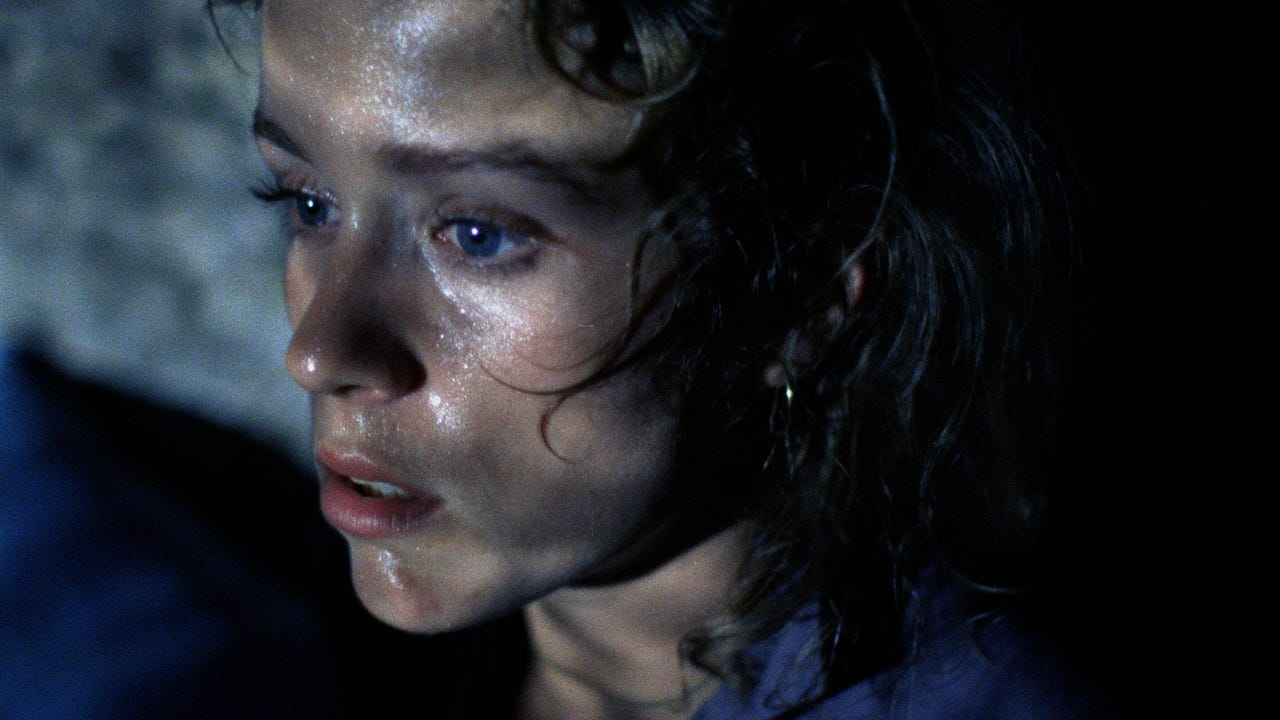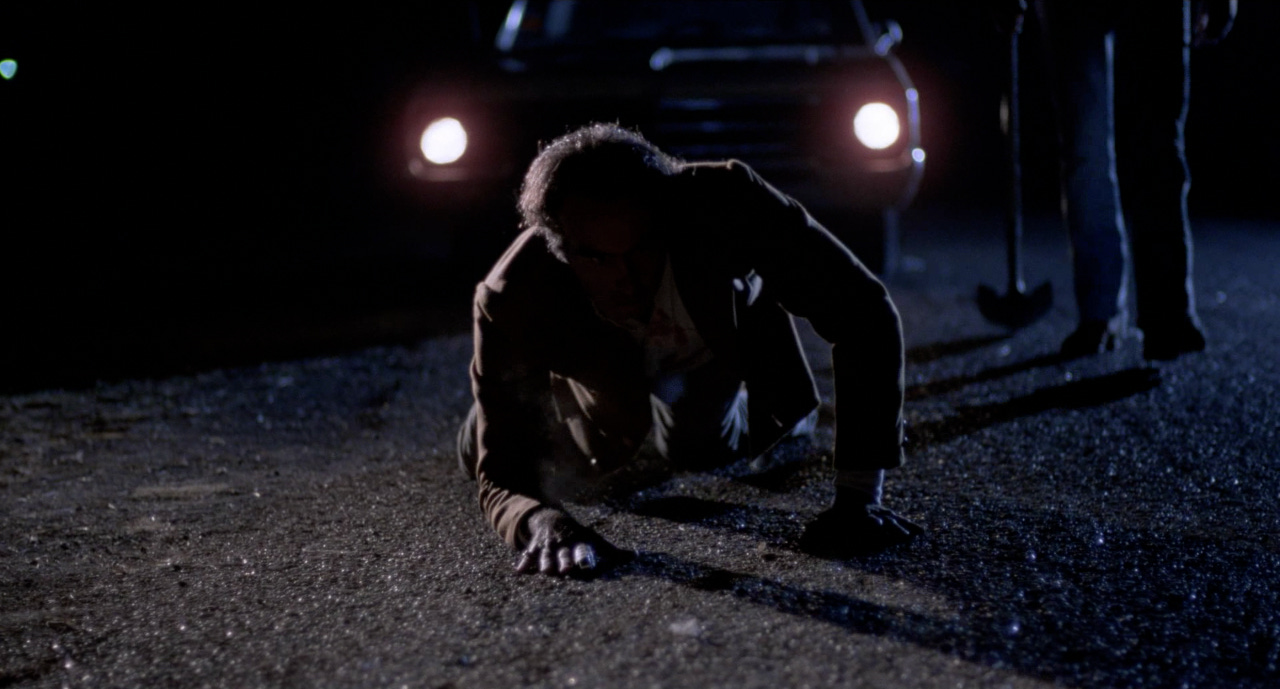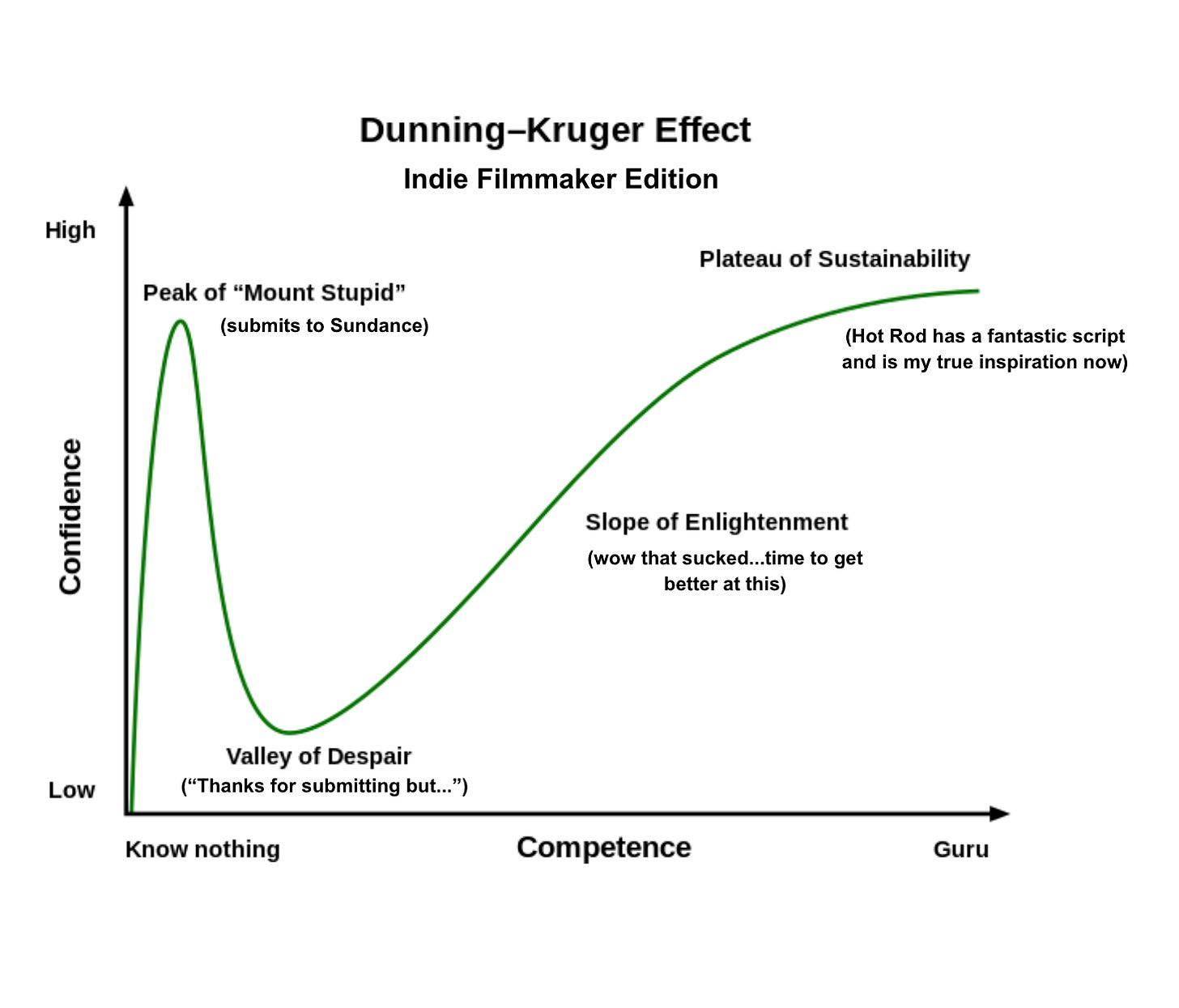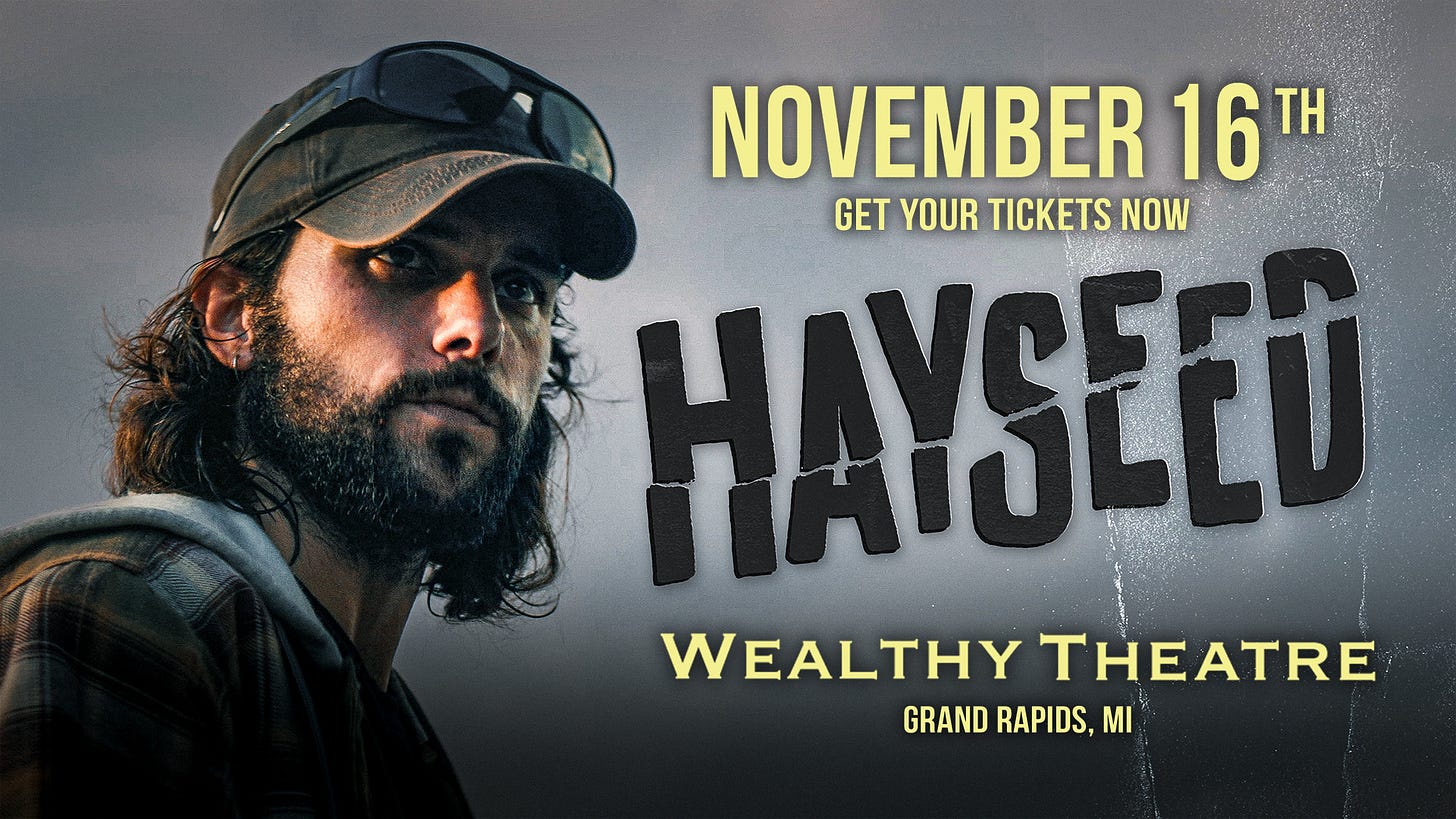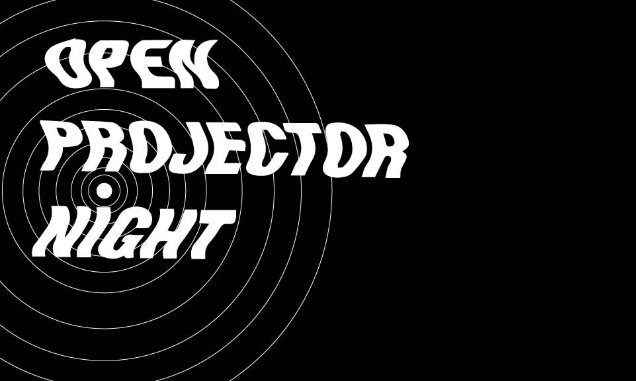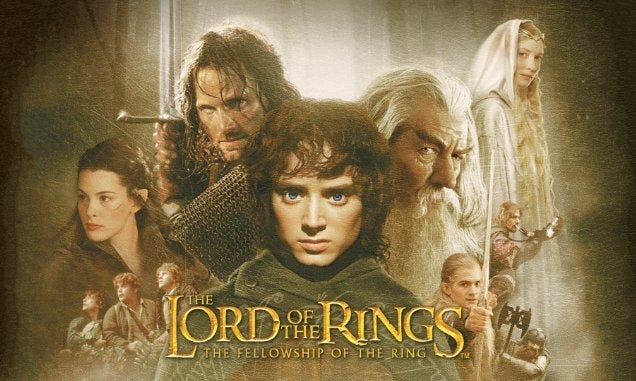[EDITED BY: GRIFFIN SHERIDAN]
Hello and welcome back to an all-new installment of BEAM FROM THE BOOTH, brought to you by GRAND RAPIDS FILM SOCIETY!
To start the newsletter this week, we wanted to remind you all that, unfortunately, we have had to cancel our FILM SOCIETY ROUNDTABLE event that was scheduled for this upcoming Wednesday. We’re currently planning to host a Roundtable in December, and we will share details about that event as soon as we can. In the meantime, please join us over on Discord if you haven’t already. The kind of conversation you may have come to love at our Roundtable events is always happening over on our server. It’s a great way to stay connected — or even meet — other members of the GR film community outside of events!
However, we do still have the pleasure of hosting TWO EVENTS this week...
On THURSDAY (11/16), we are very excited to host the debut of independent filmmaker Travis Burgess’ latest feature: HAYSEED.
After the shocking death of a small-town reverend, insurance investigator Leo Hobbins interviews six suspects and seeks to solve the case overflowing with duplicity, greed, drugs, and corruption.
Burgess and other members of the film’s crew will be sticking around after the screening for a Q&A, so be sure to hang out after the credits for insight into the creation of the film!
But before that: TOMORROW, MONDAY (11/13) at 8:00pm, NOIR-VEMBER continues with the feature debut of THE COEN BROTHERS: 1984’s neo-noir thriller BLOOD SIMPLE.
And if the trailer above isn’t enough to convince you to join us tomorrow night, here is David Blakeslee with a slew of reasons to come see this film at Wealthy Theatre...
9 REASONS TO SEE BLOOD SIMPLE ON THE BIG SCREEN
[BY: DAVID BLAKESLEE]
In last week’s edition of this newsletter, I offered up nine reasons to come join us at Wealthy Theatre for the 11/6 screening of Orson Welles’ Touch of Evil. Now it’s time for me to provide the follow-up as we conclude our brief 1-2 punch of film noir classics to mark the GR Film Society’s “Noirvember” observation by showing Blood Simple, directed by Joel and Ethan Coen. So without further ado, let’s get to it!
Blood Simple, released in 1984, played a pivotal part in kicking off the “neo-noir” era, a still-vital movement within cinema that builds on core stylistic and narrative concepts that gave definition to the classic years of film noir, commonly regarded as occurring between 1945-1958 as American society recovered from the shock and disruption of World War II.
Blood Simple’s landmark status was also a significant factor in our decision to select it as the second half of our Noirvember series. If you caught Part 1 last week, you owe it to yourself to complete the process! And even if you weren’t able to make it last Monday, Blood Simple can serve as the launch point for another two-part series this month, as Wealthy Theatre will be showing another magnificent Coen Brothers offering (1998’s The Big Lebowski) on November 21st, which I’m very happy to recommend even though it’s not a GRFS-sponsored event!
Blood Simple was the debut feature of the Coen Brothers, whose outstanding track record of success over the past four decades has made them somewhat of an institution unto themselves in Hollywood while still maintaining a strong degree of artistic independence and dedication to quality that makes any project they’re associated with practically guaranteed to be worth checking out. They were born in Minnesota in the 1950s, sons of college professors with no connections to Hollywood but a strong drive to make movies. In the 1970s, Joel went to film school in Austin while Ethan studied philosophy at Princeton. Their merged interests set them on a path that resulted in one of the most fascinating and diverse bodies of work in American cinema over the past forty years.
Blood Simple also marks the first screen appearance of Frances McDormand, an eventual four-time Oscar winner (out of eight nominations overall) who also happens to be married to Joel Coen. Billed #2 in this film, she turns in a fascinatingly down-to-earth performance as an unwitting ‘everywoman’ version of the noir-staple femme fatale.
Blood Simple’s other cast members may not boast the same packed trophy case that McDormand went on to acquire, but John Getz, Dan Hedaya, Samm-Art Williams, and — especially — M. Emmet Walsh all leave strong impressions in their respective roles.
Blood Simple also gave cinematographer Barry Sonnenfeld his first big break as he built on this and a couple other collaborations with the Coens (Raising Arizona, Miller’s Crossing) en route to becoming a highly successful director and producer in Hollywood. Sonnenfeld’s contributions to Blood Simple’s visual design are crucial to enhancing the film’s emotional and sensory impact.
Blood Simple goes well beyond a facile, self-conscious mimicking of classic film noir trappings; this is no pastiche, it’s not a parody, nor does it seek to base its appeal as a shallow remake of familiar old plot lines from fondly remembered pulp crime stories. Yes, there is a foundational plot — traceable back to classic noirs like Double Indemnity and The Postman Always Rings Twice — of a doomed and tragic love triangle between a resentful wife stuck in a dead-end marriage to an older washed-up husband who becomes romantically involved with a younger guy, leading to life-altering (sometimes life-ending) consequences for everyone involved. But the key to Blood Simple’s gripping narrative is in how the dilemma is contextualized into a frame that, despite the outrageous heights of criminal depravity we witness, still feels so relatable to the ordinary lives experienced by a majority of the film’s viewers and admirers.
Blood Simple also incorporates elements of horror that might strike some viewers as surprising and enjoyably unexpected. Early in their career, the Coen Brothers worked very closely and collaboratively with Sam Raimi (whose 1987 film Evil Dead II was recently presented as a GRFS screening). Raimi is of course a legendary director in his own right, but he, like the Coens, came up entirely outside the Hollywood studio system as indie directors throughout the better part of the 1980s, who only earned their entree after their talent for making unforgettable crowd-pleasers that also earned critical acclaim became too pronounced to ignore.
Blood Simple started out as a short trailer that they show to potential financial backers as they cobbled together a very modest shooting budget, and the rest, as they say, is history. The movie serves as a source of inspiration but also raises the bar of creative excellence for emerging independent filmmakers and, really, just about anyone with an ambition to take their love of making movies to some kind of a professional level. In making the film, the Coen Brothers blazed a trail and demonstrated a viable roadmap on how to start small and get big, and this is the project that launched them on their way. I’ll have a few more comments about the “making of” before we run the projector on Monday night!
PRODUCTION PARABLES
ON FILM FESTIVAL REJECTION
MATT EVERITT:
I suffered for a long time alone with one particular feeling: I, a Grand Rapids filmmaker, wasn't good enough to get into Open Projector Night. My most recent short was rejected, as were a few other projects along the way. But one night at a GRFS Roundtable event, Erik Howard said the quiet part loud: it sucks to get a rejection notice from OPN. Like, really sucks. This opened up a whole new avenue of conversation, and it was his idea to share more about that feeling in a formal capacity here...
10 THOUGHTS ON REJECTION
I’ve held the most deeply meaningful compliments at arm’s length because I think they can only be true if Sundance thinks so too and lets my short in. Big L.
Open Projector Night rejections hurt more than SXSW or Sundance. Upon reflection, I have a certain arrogance that tells me OPN is a shoe-in because, you know, I’m a FILMMAKER IN GRAND RAPIDS. Well, turns out, there are an incredible number of FILMMAKERS IN GRAND RAPIDS who have made incredible things. And having seen the jurors at OPN’s faces after they have to make the call of who screens for them, it’s a job that cuts pretty deep. I do not envy them.
A friend made a very long short film, like 20+ minutes. They had an 80% rejection rate. They ended up winning one of the festivals they got into and were long listed for an Academy Award because of it.
I’ve sat on a jury and been blown away by films that other jurors didn’t get and therefore they didn’t even screen. I was REALLY upset by this, so know there are jurors who love your work but there are so many other factors at play and hopefully, by now, you’re getting the sense that JUDGING YOUR QUALITY AS A FILMMAKER BY FESTIVAL ACCEPTANCE IS A POOR METRIC TO GAUGE YOUR WORK BY.
The BIGGEST value of your short is to show future collaborators who you are, and you don’t need festivals to show people what you’re capable of.
There are other ways to know you’re on the right track. For me, cold emailing potential collaborators is a big part of my process and, recently, I’ve been getting more responses and interest in my work...even though I’ve never screened at a festival bigger than Art Prize.
A friend of mine had a short that only got into a few festivals, one of which was a smaller festival in Ohio. He made the choice to fly out there and attend, even though it was screening at 8am the night after a big party. Turns out, a friend of a friend was there; they got chatting, and they got connected to someone who wrote a $50,000 check to get production on his first feature going. That feature is now crushing in festivals across the world, many of which are the first time he’s had anything accepted by them.
This one might be controversial, but it would be dishonest to not include it: the game isn’t fair. Jim Cummings admitted to not having the song rights squared away when his Thunder Road short got into Sundance, but he told them he did (he did get them squared away at a later date, but you get the point). I personally do not think lying or fudging your legal standing for the work you’re submitting is a good idea...but it’s tough to look at the trajectory of his career and say it’s not paid off for him. The GRFS DOES NOT CONDONE LYING TO FESTIVALS. The author is more indifferent at this point.
If you ever see me at OPN and just got a rejection from anywhere, let me know and I’ll buy you a beer (or soda, your call).
Last, but not least: if you have a film to submit — congratulations! You’ve made something in a world full of people who talk about making things but don’t. There’s a piece of your soul in the world now. You exist in more than one place because of that. You pursued your passion in a world that makes that increasingly harder to do. Please, please, please do not let some group of strangers' opinions and logistical hurdles of film programming diminish the light of that feeling.
ERIK HOWARD:
There’s nothing quite like seeing that notification for the first time: “Judging status has changed for (insert your film title here).” The momentary rush knowing that your film has been watched by an official programming team at a festival you’ve dreamt of going to. Your mind races in mere seconds towards: “Where am I gonna stay? How many people are going to see it? What cool theater will it screen in?” So many questions, so much excitement, all I need to do is...
Cue a copy-and-pasted letter which has the most fluffy way of telling you ‘You’ve been rejected.’ The first time I read that after my first short film, Drop Dead, Gorgeous. was submitted to Lansing’s Capital City Film Festival...pure deflation.
Now my first short film was nothing special. It was made in a fiction filmmaking course at Grand Valley State University and was a really safe comedy with a concept I was proud of. It screened well in edits amidst my incredibly talented class, and of course my family were ecstatic about its completion (my mother was probably just excited that I cast her in it). As it finished up, I felt unstoppable — I made a film! With the leftover budget, I hit FilmFreeway like a machine. I browsed festivals all over the world dreaming of where I’d make my name. The possibilities seemed endless, with recognition and appreciation just a credit card entry away.
I was rejected by every single festival I submitted to.
All the hard work of my crew, my incredible actors who deserved better, all that money down the drain. Even though I had a support system of people like GRFS member Jackson Ezinga who did his absolute best to prepare me for potential disappointment, my whole world crashed down.
Doubt began to creep into my mind, was I even a talented filmmaker? I worked on this concept forever (no I didn’t), spent a summer getting inspired (by talking to myself while working at Target), wrote so many drafts of the script...and nobody wanted to screen it? Even worse, I had chosen festivals that were only in the Midwest, even submitting in categories like “Michigan Student” where the category practically exists to give young filmmakers like myself a chance to take in the festival atmosphere. I wasn’t even good enough to screen amongst others that were honing their craft and voice? Apparently mine wasn’t good enough.
That spring was characterized by email after email rejecting me, where some clearly copied-and-pasted the name of my film onto a rejection letter (made apparent by the different font that the title appeared in). Before I had even received my final festival rejection, I had sent an email to my actors and donors that simply said “Sorry.” The film was doomed to die on YouTube and Vimeo, where I realized — as of writing this — I never even posted to YouTube, as it boasts a whopping 104 plays on Vimeo...three quarters of which were probably just me clicking it to share the link with someone.
The ability for a simple email to dictate your entire perspective on yourself as a creative, even as a person, is a dangerous predicament for filmmakers anywhere. The blood, sweat, and tears of grueling productions completely disregarded with little explanation as a festival runs off with $20 you submitted just so they’d watch the damn thing. Rejection, while crushing, serves as the greatest teacher for us as filmmakers.
It was in that rejection, and feedback from a brilliant support system of accomplished filmmakers, that I made my thesis film razor-tight. I made sure I channeled that fear of rejection into a project that frankly couldn’t be rejected. I’d take on the same categories that I had submitted to before, this time with a comprehensive piece that could go toe-to-toe with students all over the Midwest. After the painstaking edit was finished off by the brilliant duo of editor/colorist Chrisna Ngin and sound designer Hannah Holster, I thought there would be no better thing than to have Farewell Tour screen at Open Projector—
Rejected!? From Open Projector Night??
It couldn’t be...the film takes place right in Grand Rapids...it mentions it by name! This film was made for Grand Rapids, it was made for Wealthy Theatre!
Getting that rejection from OPN was truly the lowest I’d felt in a long time. I remember calling my mom in tears, telling her that I really was a failure. I couldn’t even screen this labor of love made for Grand Rapids in Grand Rapids. This time, it was a film that was me on the screen. I put my everything into it, my last stand as a man who believed himself to be a filmmaker. I...
...submitted it again. And then I won the ‘audience choice’ award. It was good enough.
As I sit here today reflecting on my journey with rejection, paired with some incredible notes by Matt Everitt whom I have bonded so close with over rejection in this field, I find myself so grateful. I am grateful that I have been rejected from 18(!) festivals with just two short films to my name. In the name of ‘having my work shown and appreciated!’ I made two pieces of art I’ll forever be proud of. I got to work with unbelievably talented actors, the best crews I could’ve asked for, and screened with films that I can still sing praises of to this day.
In those moments of pain, critical depression, and self-doubt, I had learned how to love and appreciate the craft of filmmaking. The triumph and the tribulations of uniting under a common goal of telling a story that everyone can be proud of. I learned to love myself, my experiences, my passions, my dreams, my stories. It reconnected me with the dream that set me on my filmmaking path: “If I can even just be a part of a movie that helped change someone’s life, I’m gonna do it.”
No festival programmer can reject that idea.
TiPi TURNS TEN
[BY: JACKSON EZINGA]
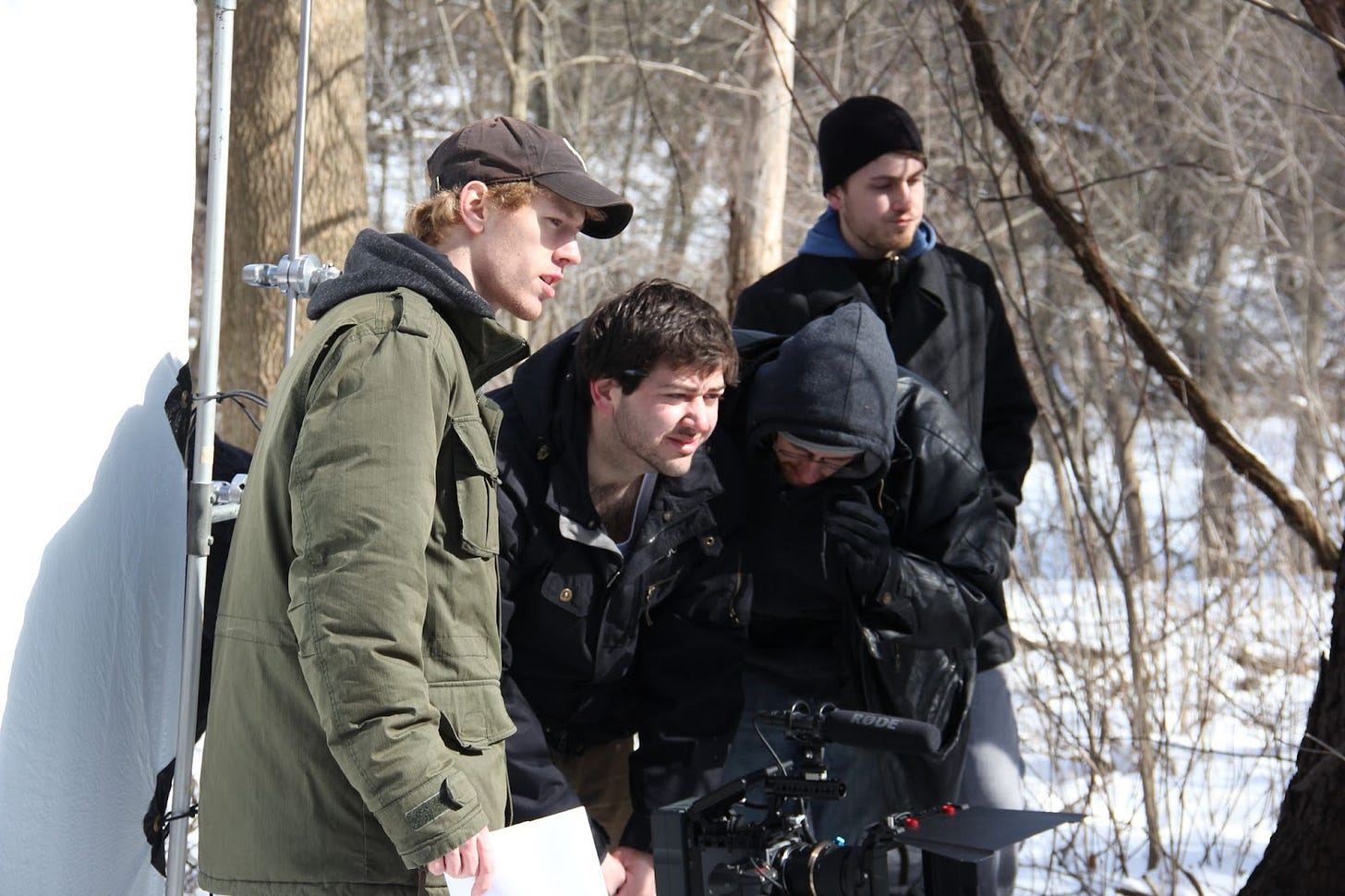
In 2013, I wrote, produced, and directed my senior thesis, TiPi, at Grand Valley State University. This was the first short film for which I had complete creative freedom, a full crew, and an actual budget to work with. I wanted to make a film that was personal yet would still resonate with a wider audience through its themes of friendship and deciding when enough is enough. My professors told me that this project was “ambitious,” but I could see it all in my head and had to get in on the screen.
TiPi is adapted from a short story I wrote in a GVSU creative writing class taught by Oindrila Mukherrjee. She helped me develop the story from its extremely rough draft into what I eventually adapted into the screenplay. I was writing this coming-of-age story as an excogitation on how my life was going to change after coming out of the closet. I was prepared for bullies and bigots, but the hardest part for me to accept was that some people I had known for years, maybe even my whole life, might not stand up for me or support me when I needed them to. There was a lot of fear and anger in these realizations which resulted in a protagonist who has to deal with an insecure and verbally abusive new “friend” that his older, longtime friend has started hanging around with.
After graduation, I wanted to share Tipi with a wider audience than my professors, classmates, and anyone who may have stumbled across it online. I started submitting it to film festivals, and after about a half dozen rejections from some bigger, more prestigious festivals, I received my first ‘Official Selection’ at the 16th Annual East Lansing Film Festival (which is currently running Nov 9-16 in East Lansing for its 26th year!). It was a blast to attend the festival, mingle with other filmmakers, watch some awesome movies, and to screen TiPi for an audience mostly of strangers. I participated in my first Q&A and, to my surprise, was awarded the “Most Promising Student Filmmaker” award!
TiPi went on to screen in several more film festivals, and it ignited a want — no — a need to continue to share my work on the festival circuit. In the past ten years, I’ve traveled around North America to film festivals where my work (or films that I worked on) has screened. It’s always an absolute joy to gather with a bunch of filmmakers and film lovers to watch, discuss, and celebrate films of every genre, mode, and style. The immediate feedback I’ve received from the in-screening reactions to the after-party discussions have helped me grow as a filmmaker. Cinema is a communal art and film festivals are a perfect setting for facilitating the social aspect of the cinematic experience.
It’s a trip going back and watching my “old” work. Are there things I would have done differently if I made TiPi today? Absolutely. But am I still proud of what we were able to accomplish and the journey this little student film has taken me on? Absolutely! I recently uncovered an old hard drive that had Behind The Scenes footage and photos that some crew members had taken during the production. I assembled a short featurette showing moments that I was too focused to remember on my own. It was a nostalgia wave and great to see classmates (some of whom I still work with today!) smiling, laughing, and having a great time making a movie. Cheers to ten years of TiPi, and cheers to my cast and crew who helped me bring this story to life!
UPCOMING EVENTS
BLOOD SIMPLE (Coen, 1984)
WHAT: A Texas bartender finds himself in the midst of a murder plot when his boss discovers that he is having a love affair with his wife and he hires a private investigator to kill the couple, but the investigator has his own agenda.
WHEN: Monday, November 13th, 8:00pm
WHERE: The Wealthy Theatre
HAYSEED (Burgess, 2023) + FILMMAKER Q&A
WHAT: After the shocking death of a small-town reverend, insurance investigator Leo Hobbins interviews six suspects and seeks to solve the case overflowing with duplicity, greed, drugs, and corruption. (Featuring a special Q&A with director Travis Burgess and the Hayseed Producers after the screening!)
WHEN: Thursday, November 16th, 8:00pm
WHERE: The Wealthy Theatre
WHAT: A program of curated short films from independent filmmakers with a MI connection!
WHEN: Wednesday, November 29th, 7:00 pm.
WHERE: The Wealthy Theatre
LORD OF THE RINGS: FELLOWSHIP OF THE RING (Jackson, 2001) + COSTUME PARTY
WHAT: Come dressed up as your favorite Lord of the Rings character and join us for a screening of the first installment in Peter Jackson’s epic trilogy!
WHEN: Saturday, December 1st, 7:00pm
WHERE: The Wealthy Theatre
And so we’ve arrived at the end of another BEAM FROM THE BOOTH! We appreciate you taking the time to read it and truly hope you’ll continue to do so. Be sure to SUBSCRIBE to get each issue in your inbox every SUNDAY, and stay up-to-date on all things GRFS.
Plus, join us on social media! We’d love to chat with everyone and hear YOUR OWN thoughts on everything above (you can also hop in the comments section below).
Know someone you think will dig BEAM FROM THE BOOTH? Send them our way!
Look for ISSUE #35 in your inbox NEXT SUNDAY, 11/19!
Until then, friends...

